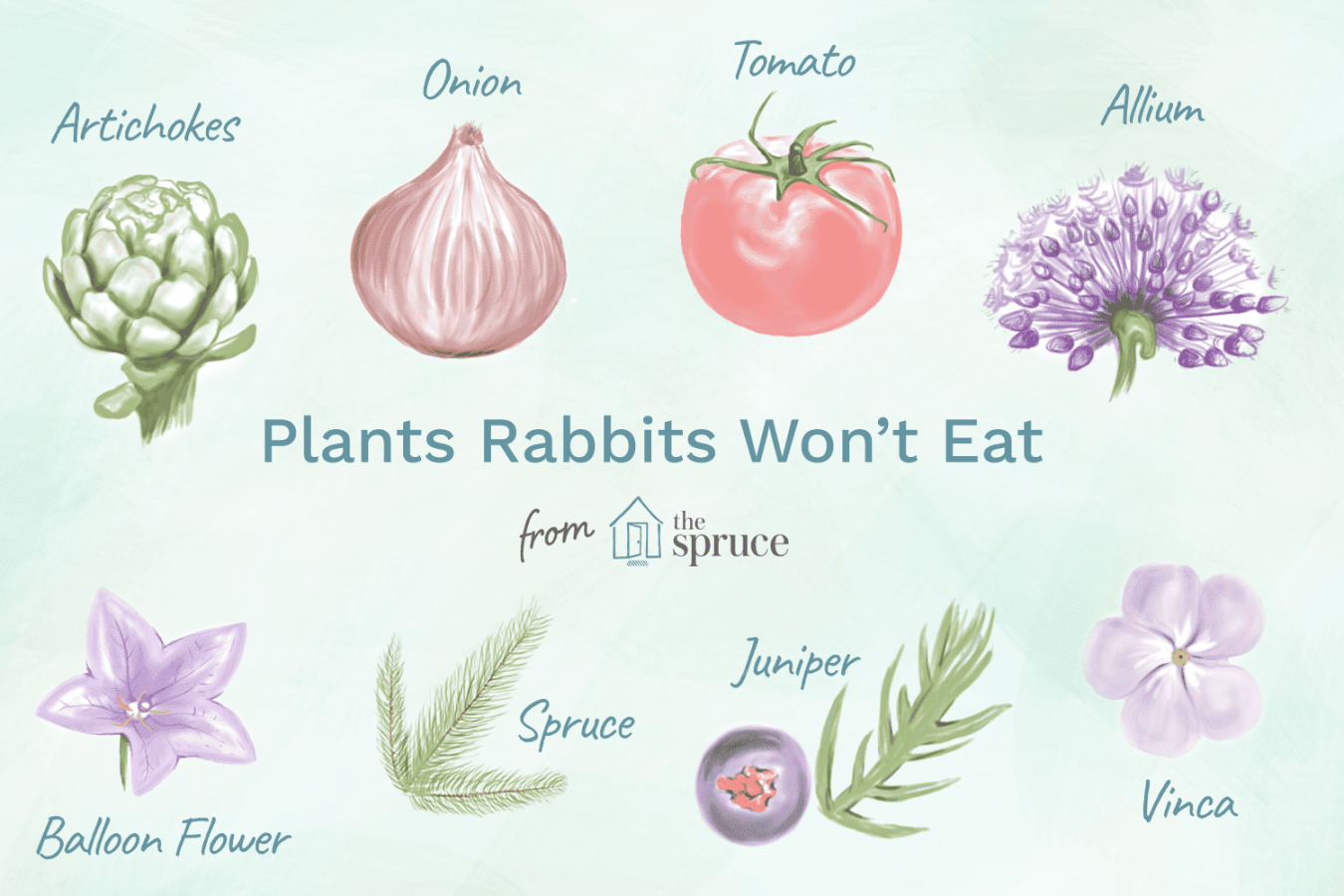What Plants Do Rabbits Not Eat?
Rabbits are notorious for their voracious appetite and ability to wreak havoc in gardens. They are known to devour a wide range of plants, from vegetables to flowers. However, there are certain plants that rabbits tend to avoid. If you are a gardener looking to protect your plants from these furry intruders, here is a list of plants that rabbits typically do not eat.

Plants with Strong Aromas
Rabbits have a keen sense of smell, and they are often deterred by plants with strong aromas. These plants contain odors that rabbits find unpleasant, making them less likely to indulge in a buffet of greens. Some examples of plants with strong aromas that rabbits tend to avoid include:
- Mint
- Lavender
- Rosemary
- Thyme
- Oregano
Plants with Tough or Hairy Leaves
Rabbits have sensitive mouths, and they prefer plants with softer leaves. Plants with tough or hairy leaves can be a turn-off for rabbits, as they are more difficult to chew and digest. Here are some plants with tough or hairy leaves that rabbits generally steer clear of:
- Lamb’s ear
- Yarrow
- Salvia
- Ferns
- Lupines
Plants with Bitter Tastes
Rabbits have taste buds that are quite different from ours, and they have an aversion to bitter tastes. Plants with bitter flavors are less likely to be on a rabbit’s menu. Some plants known for their bitterness that rabbits typically avoid include:
- Daffodils
- Dandelions
- Marigolds
- Irises
- Foxtail lilies
Plants with Toxic Properties
Rabbits have an instinctive sense of self-preservation and tend to avoid plants that are toxic or harmful to them. While it is important to note that rabbits have different sensitivities, there are several plants that are generally considered toxic to rabbits and are best avoided. Some examples of plants that rabbits should not consume due to their toxic properties include:
- Azaleas
- Rhododendrons
- Hydrangeas
- Tomatoes (leaves and stems)
- Potatoes (leaves and stems)
It is important to remember that while these plants are generally avoided by rabbits, individual preferences may vary. It is always a good idea to observe your rabbits’ behavior and consult with a veterinarian if you have any concerns about the safety of certain plants.
Frequently Asked Questions (FAQs)
1. Can rabbits eat grass?
Yes, rabbits can eat grass. In fact, grass is a natural part of a rabbit’s diet and provides essential nutrients and fiber. However, it is important to ensure that the grass is free from pesticides or other chemicals that could be harmful to rabbits.
2. Are all types of mint safe for rabbits?
While rabbits generally avoid plants with strong aromas, they may still consume certain types of mint. However, it is recommended to avoid providing large amounts of mint to rabbits, as it can cause digestive issues in some individuals. It is always best to introduce new foods gradually and monitor your rabbit’s reaction.
3. Can rabbits eat roses?
Rabbits are known to have a particular fondness for roses, especially the tender leaves and young shoots. If you have a rabbit problem in your garden, it is advisable to protect your roses with fencing or deterrents to prevent them from being nibbled on.
4. Are there any plants that are completely rabbit-proof?
While certain plants are less likely to be eaten by rabbits, it is important to note that there is no such thing as a truly rabbit-proof plant. Rabbits have individual preferences and behaviors, and what one rabbit may avoid, another might find appetizing. It is best to employ a combination of rabbit-resistant plants, fencing, and other deterrents to protect your garden.
Related Articles…
Copyright Notice:
This website utilizes images found online, all copyrights are retained by their original owners. If you would like an image removed, kindly contact us.